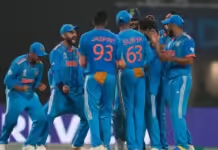Dart flights play a crucial role in the trajectory and stability of your darts, influencing their flight path and overall performance. Understanding the different shapes, sizes, and materials of dart flights is essential for selecting the right ones that suit your playing style and enhance your accuracy on the dartboard. Whether you’re a beginner or an experienced player in Australia, this guide will help you navigate the world of dart flights.
1. Shapes of Dart Flights
Dart flights come in various shapes, each affecting how the dart travels through the air:
- Standard Flights: Standard flights have a triangular shape and are the most commonly used type. They provide moderate stability and are suitable for players with a consistent throwing style.
- Slim Flights: Slim flights have a narrower profile than standard flights, offering less drag and faster dart speeds. They are preferred by players who use a faster throwing motion or who prefer tighter groupings on the dartboard.
- Kite Flights: Kite flights have a distinctive kite-shaped design with a wider top and narrower bottom. They provide more lift and stability during flight, making them ideal for players who throw with a gentle arc or prefer darts that land softly on the board.
- Pear Flights: Pear flights have a rounded shape, tapering towards the dart shaft. They offer a compromise between standard and kite flights, providing stability and moderate lift. Pear flights are versatile and suitable for various throwing styles.
- No. 6 Flights: No. 6 flights have a larger surface area than standard flights, offering maximum stability and control. They are favoured by players who use a powerful throwing motion or who prefer darts that maintain a consistent trajectory.
Choosing the right shape of dart flights depends on your throwing technique, dart weight, and personal preferences. Experimenting with different shapes can help you find the flights that optimise your dart-playing performance.
2. Sizes of Dart Flights
Dart flights are also available in different sizes, typically categorised by their surface area:
- Small Flights: Small flights have a reduced surface area, offering less drag and faster dart speeds. They are suitable for players who prefer quick dart throws or who use lighter dart weights.
- Medium Flights: Medium flights strike a balance between surface area and stability. They are versatile and suitable for most players, providing consistent performance across various throwing styles.
- Large Flights: Large flights have a larger surface area, offering maximum stability and control over dart trajectory. They are ideal for players who use heavier dart weights or who prefer a slower, more controlled throwing motion.
Selecting the right size of dart flights depends on factors such as dart weight, throwing speed, and personal comfort. Larger flights provide more stability, while smaller flights offer increased dart speed and reduced drag.
3. Materials of Dart Flights
Dart flights are commonly made from the following materials, each offering unique properties:
- Plastic Flights: Plastic flights are the most common type, known for their durability and affordability. They come in various colours and designs, allowing players to customise their dart setups according to personal preferences.
- Nylon Flights: Nylon flights are lightweight and flexible, offering good durability and resistance to damage from dart impacts. They provide consistent performance and are suitable for players who prefer a softer landing on the dartboard.
- Polyester Flights: Polyester flights are rigid and durable, providing excellent stability and shape retention during flight. They are less likely to warp or bend compared to plastic or nylon flights, making them suitable for players who prioritise consistency in dart throws.
- Fabric Flights: Fabric flights are made from woven materials such as polyester or nylon, offering a unique texture and appearance. They provide good durability and can be washed and reused, making them a sustainable choice for environmentally conscious players.
Choosing the right material of dart flights depends on factors such as durability, flexibility, and personal preference for aesthetics. Experimenting with different materials can help you find the flights that enhance your dart-playing experience.
Conclusion
Dart flights are essential components of your dart setup that significantly influence the accuracy and performance of your throws. By understanding the shapes, sizes, and materials available, you can make informed decisions to optimise your dart-playing experience in Australia. Whether you prefer standard flights for consistent performance or slim flights for faster dart speeds, choosing the right dart flights enhances your ability to hit the bullseye and enjoy the game to its fullest.
For enthusiasts in Australia looking to enhance their dart setups, exploring different shapes, sizes, and materials of dart flights can lead to improved accuracy, consistency, and overall enjoyment of the game. Invest in quality dart flights that complement your playing style and elevate your dart-playing skills today.















